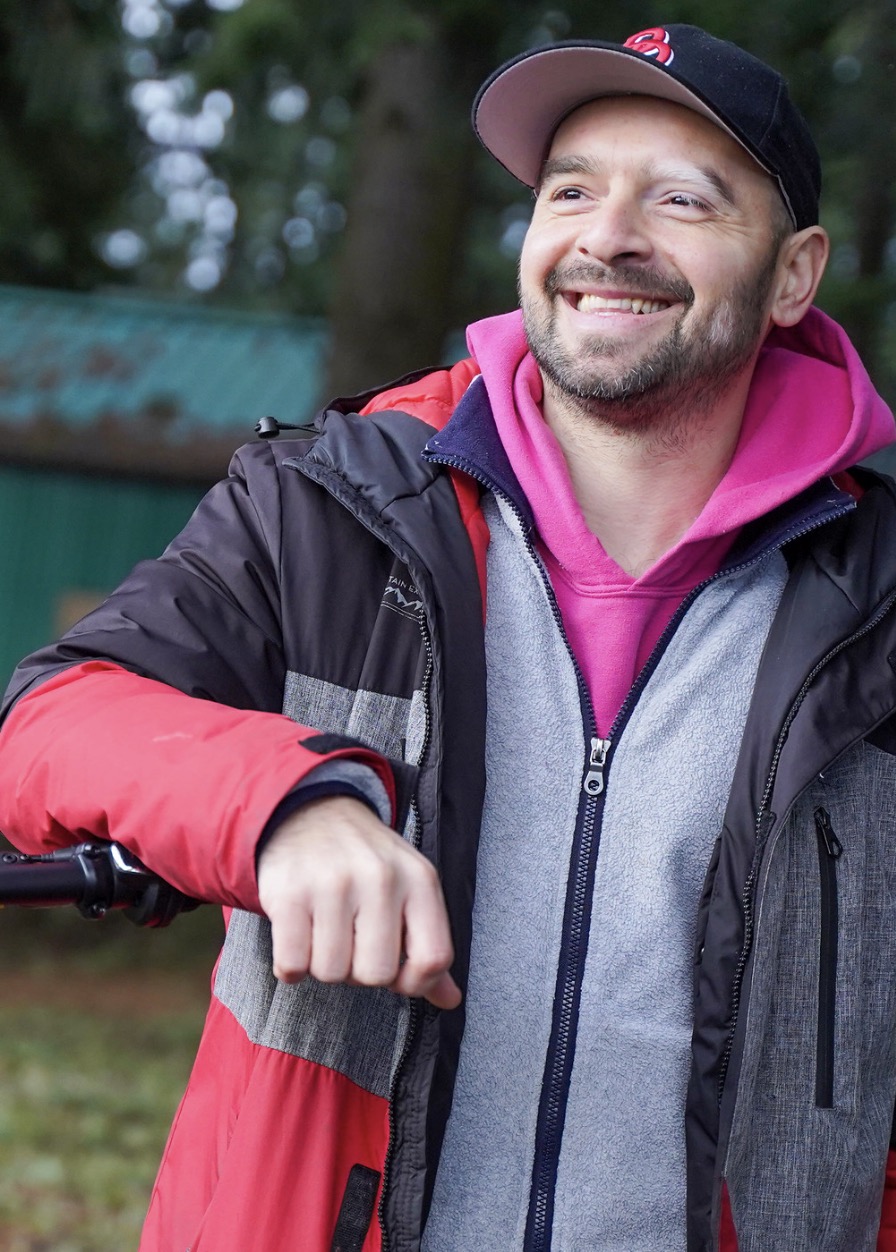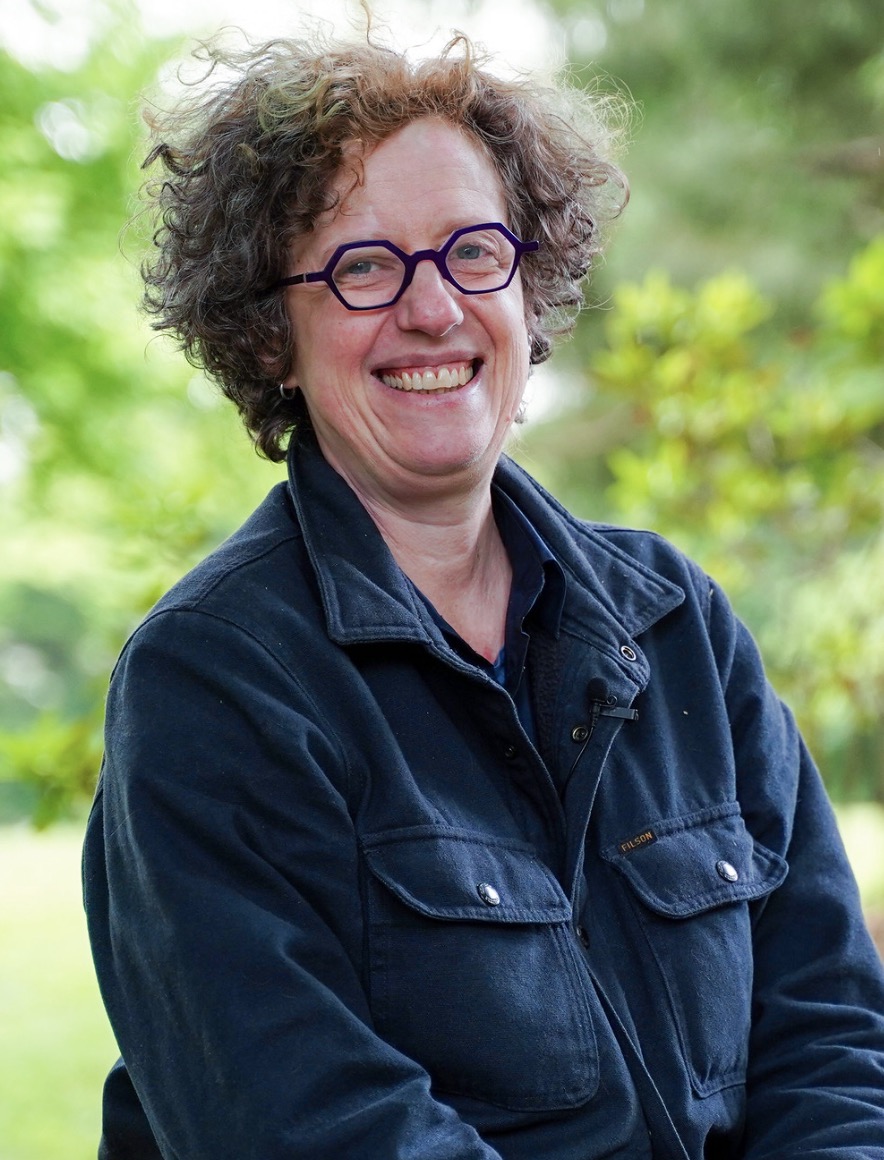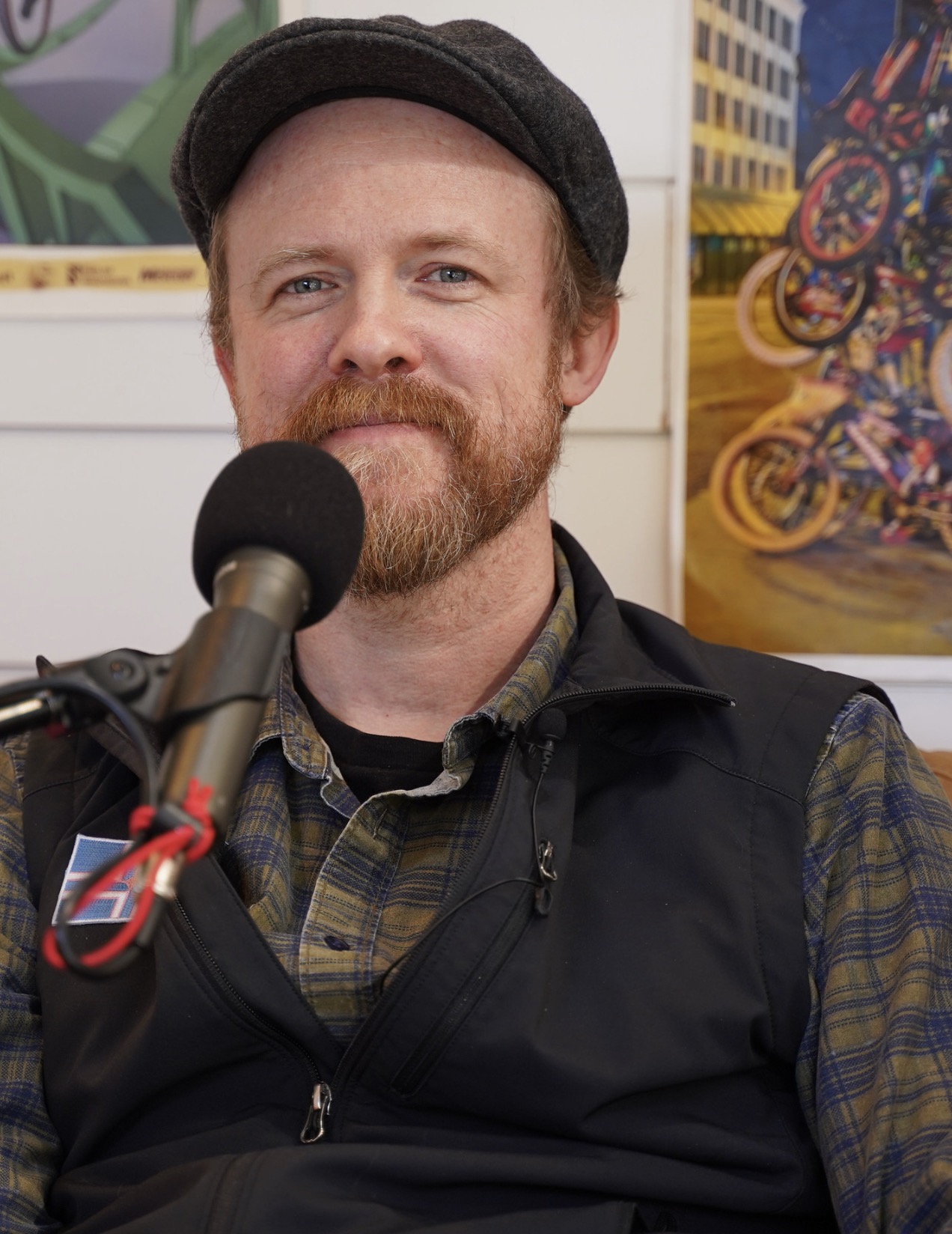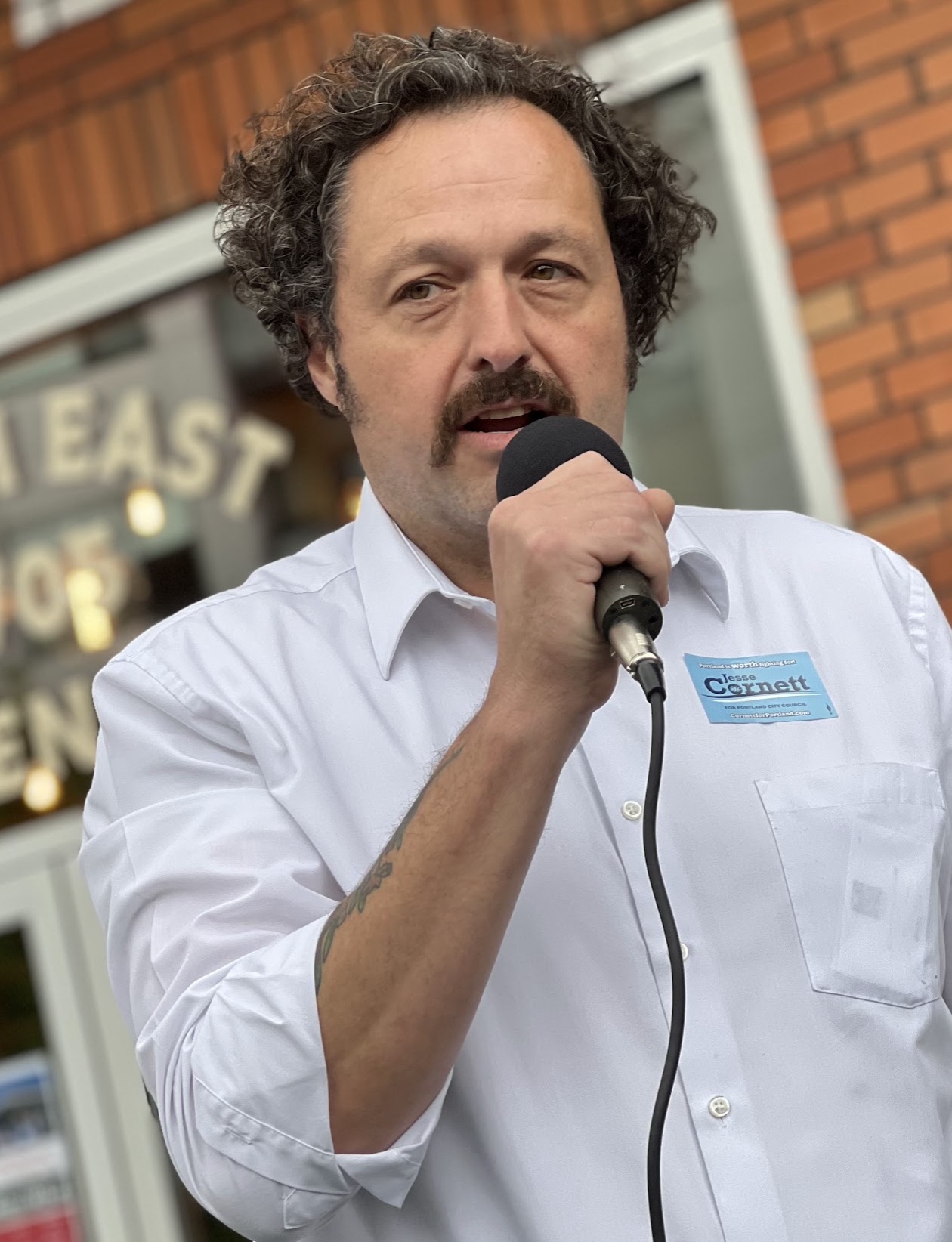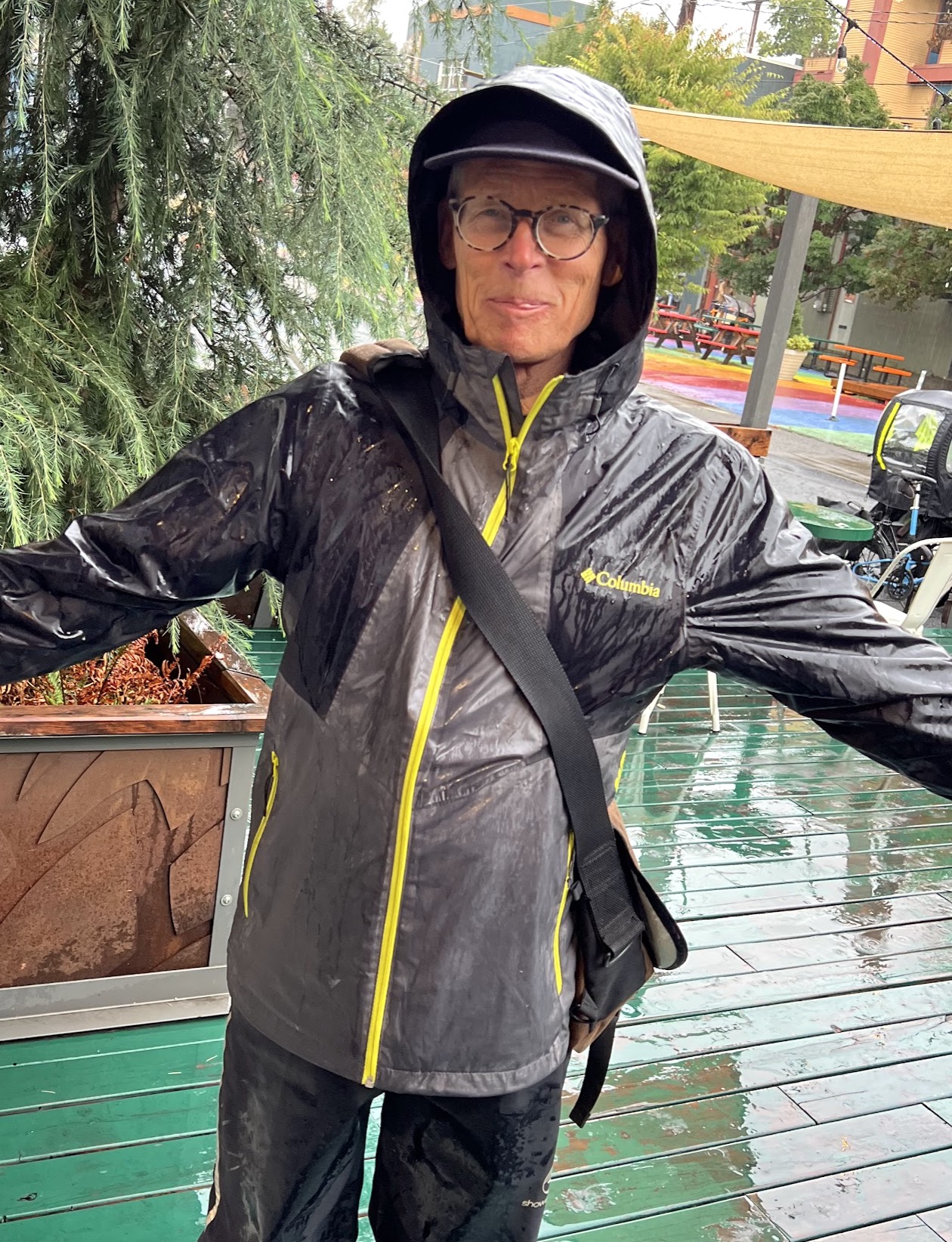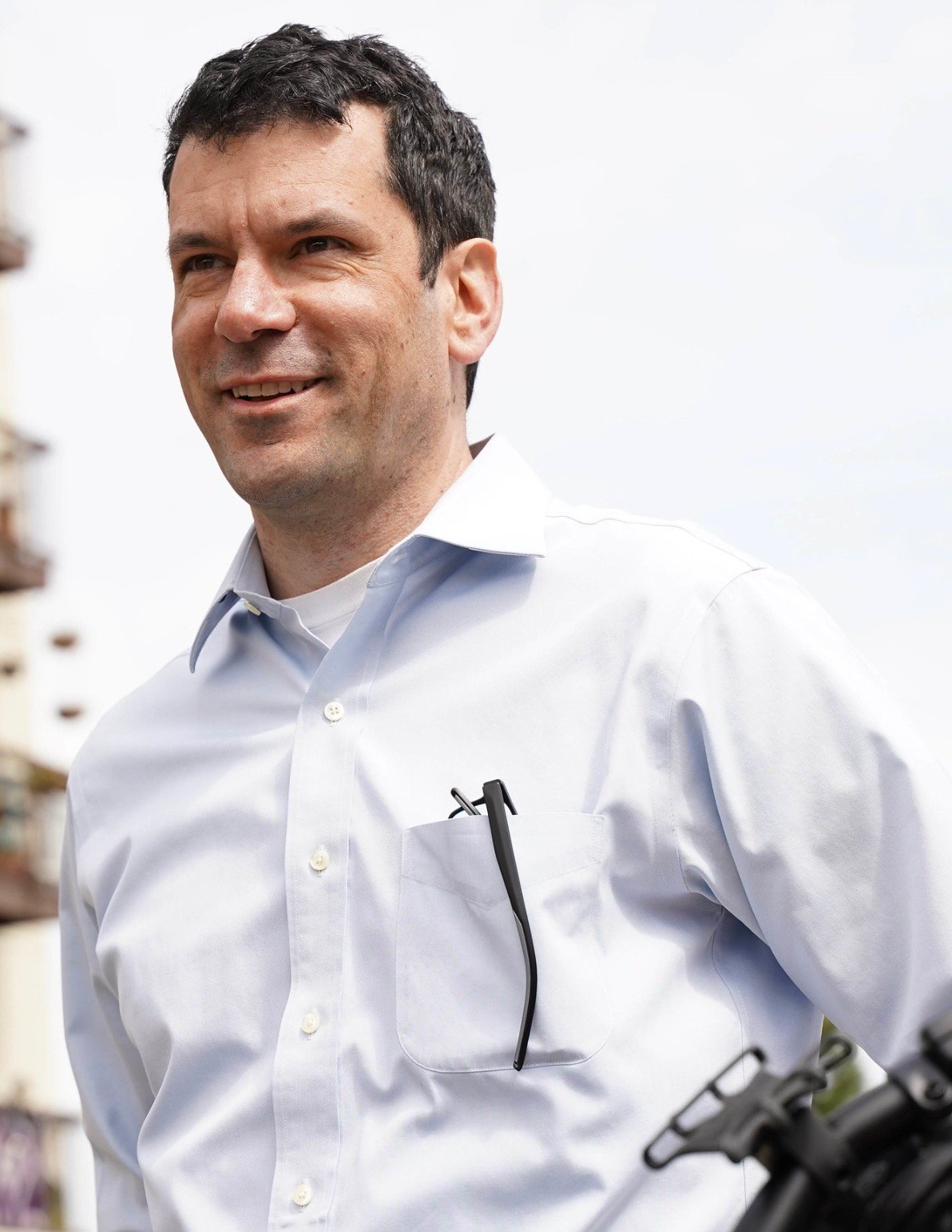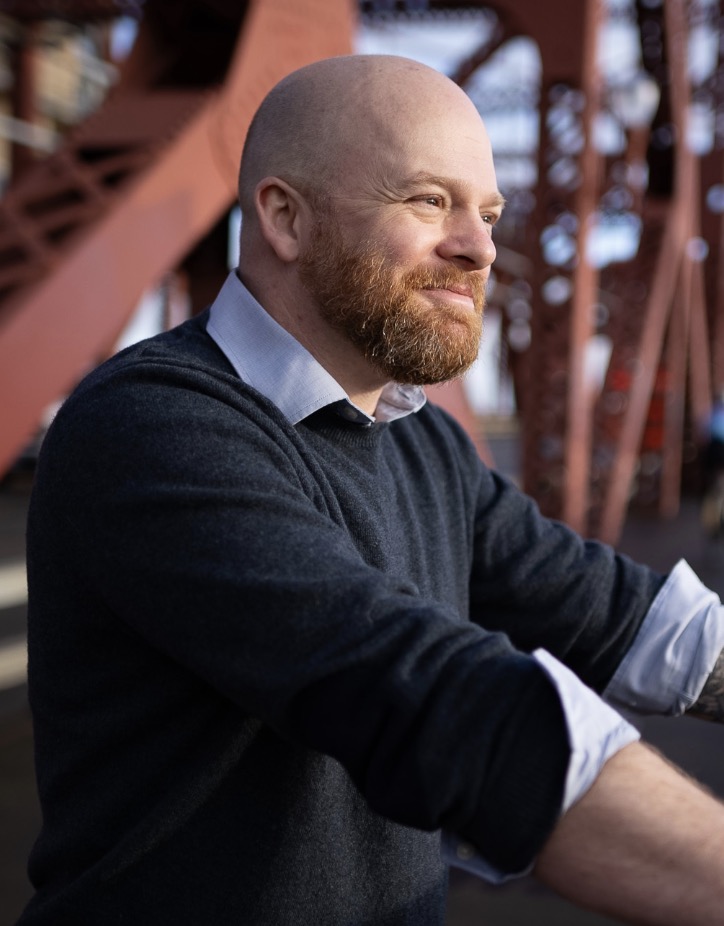
The emergence of Week Without Driving on a national scale is one of the most promising developments in low-car/no-car activism in years. Launched for the first time in 2021 by Washington-based disability rights and transportation advocate Anna Zivarts, the annual observance is an excellent excuse for politicians, policymakers, or just regular folks to drive less.
As our planet and our local election heats up, and transportation emerges as a campaign issue, there was no question some Portland candidates would give it a try last week (the official dates of the challenge were September 30 to October 6th). And if it wasn’t on their radar, The Street Trust Action Fund put it there by asking them to participate as part of their endorsement process.
I’m aware of nine city council candidates who participated. Eight of those replied to my queries about it and seven sent me their responses in time for this post. I asked each candidate the same three questions (plus an open-ended one): 1) Why did you do it? 2) What two experiences would you like to share?, and 3) Did it change how you see transportation in Portland?
Below are reflections about Week Without Driving from seven Portland city council candidates…
Timur Ender, District 1 (East)
I participated in Week Without Driving because how we view our streets shapes public policy. I think this campaign presents an opportunity for people to have different experiences and to see their neighborhood from a different perspective. It also pushes people to plan and execute on what their multimodal choices would be if they needed to use them.
One memorable experience I had occurred on Wednesday, October 2nd. My day started at 6:30 am taking our foster child to school and ended at 10:30 pm biking back from a soccer game. As I was biking in between different events, I heard my oldest child playing at their friend’s house before school. I wasn’t aware they were going to be there. I biked over to her, wished them a great day, and gave her a hug and a kiss. It was the only time we saw each other that day. In the middle of a hectic day within the midst of a 15-month long city council campaign where I’ve sacrificed hours away from my kids and family, that moment meant a lot. Had I been in a car, I’m fairly sure I wouldn’t have heard them playing— nor would I have been driving on that local street in the first place.
I don’t think it changed how I view transportation issues as we frequently use transit, biking, and walking as a family but I did appreciate the opportunity to participate. (Learn more about Ender here.)
Marnie Glickman, District 2 (N/NE)
I decided to participate because I want to learn firsthand what it is like for one-third of Portlanders who do not drive or cannot afford to drive a car.
It was harder than I thought it would be. As a person living with multiple sclerosis, there were two days when I felt too weak to ride even my electric trike. I also discovered that it was easier for me to stay home (even during the final stretch of my campaign) than venture out into the city. Carrying my lawn signs onto the line 24 bus was too challenging for me.
The experience changed how I see transportation because I discovered how much more difficult and time-consuming transit was without a car and the ability to cycle in Portland. I can imagine a little more easily what life is like for so many Portlanders who are struggling to get from one place to another safely.
Portland’s transportation system should facilitate the safe movement of humans of all shapes, sizes, and abilities. Our transportation system needs to connect people together and build resilient, thriving communities without harming the environment and wildlife. (Learn more about Glickman here.)
Nat West, District 2 (N/NE)
For most weeks in a given year, I don’t drive. So this wasn’t so much a challenge for me as an opportunity to highlight alternative modes of transportation and participate in a bigger conversation. I really like the timing of this week as the seasons are changing. There are a lot of people who use more active modes when the weather is nicer but retreat to their cars when the rains come. So this week was hopefully an opportunity for people to experience a few chilly mornings on their commutes. As a daily cyclist, I really enjoyed seeing so many other people getting around via other modes like transit and walking.
On Friday morning, I got hit from someone running a stop sign on SE 7th. That’s the second time I was hit on that stretch of road this year. There is clearly work to be done, not just there but in many places of Portland. I also want to share that I went to a conference on Friday with a few hundred attendees and only saw two bikes there. So despite the publicity of the week, I don’t think the message got around to a lot of people.
I’ve been campaigning on transportation policy, and specifically safe streets for the last eight months, so I can’t say this week changed my perspective. But I’ll take every opportunity to talk to voters about larger bigger community efforts to engage more actively with transportation. It’s easy to ignore a single person riding a bike every day, but harder when you see many people talking about not driving.
I noticed quite a few other City Council candidates participating in Week Without Driving using various modes, but I didn’t see any mayoral candidates talking about it. Considering the bad driving records of Carmen Rubio and Rene Gonzalez, this dichotomy may be a sign of differences in vision in the new government come January. We may end up with some elected officials who clearly think the rules of the road don’t apply to them, and others who feel the impact of those bad behaviors. (Learn more about West here.)
Jesse Cornett, District 3 (SE)
I rarely drive any longer. For health and for lowered expenses, I enjoy my pedal-powered alternatives. This past week I was vexed by flats, which lead to unanticipated car trips. I finally got new tires and rim tape yesterday, so I hope the deflating trend is over!
I would estimate that 95% of my trips since June have been by bike, including to Council Crest (for fun) and Edgefield (for music!).
I feel as if I see the strides that have been made in the past decade for bicycle safety and better understand our transportation system because of my shift back to two wheels.
I’ve had one minor crash and surprised how easily I’ve been able to make minor repairs on. (Learn more about Cornett here.)
Rex Burkholder, District 3 (SE)
It was great to have an excuse to break out the trailer and do some serious shopping without a car.
I try to make every week a week without driving, but sometimes, when the rain is pouring or I have many destinations to get to and I’m tired, having a goal of not driving — for all the very good reasons not to drive a car — gets me over the hump and back on my bike.
First, I got a lot more mileage in on my bike, with having to canvass voters in a large geographic area as well as attending voters forums, I was going from one end of town to the other more than usual.
Second, is that I did drive a car one day to take my partner, Lydia, to Kaiser to get a cast on her broken wrist. She has not been able to ride a bike (and is very frustrated) after breaking her wrist when she tripped hiking. She also has difficulty driving so I was her willing driver that day. Transit would have been an hour trip with two transfers to get to Kaiser, a taxi trip, or a 10 minute drive. We make choices.
As a regular bicycle user and walker, my experiences weren’t that much different.
I think that we should require all City of Portland employees, at least those working in transportation, and our future councilors and mayor as well, to experience a week without driving to understand what many Portlanders experience everyday — those who have no choice but to walk, take transit, or cycle due to income, age, disability or other situation that makes driving a car impossible. (Learn more about Burkholder here.)
Chad Lykins, District 4 (West/Sellwood)
I did the week without driving both because I’m a big supporter of active transportation and because I wanted to show solidarity with those for whom driving is not an option. To make it work, I had to rig my bike up for more carrying capacity for delivering yard signs. I was able to do some tasks on a bike that had previously been more challenging. Also, I finally got to ride my bike to a Timbers game at Providence Park. The bike parking there is amazing!
I already knew a lot of the challenges and joys to be found on Portland roads, partly from the ride-along Jonathan and I did together.
I would point out that the Week Without Driving isn’t just about bikes. I thought a lot about people who have various disabilities that prevent them from walking, riding, or driving. Our city needs to be a place where all people are able to get around. (Learn more about Lykins here.)
Mitch Green, District 4 (West/Sellwood)
Driving less is important to me, and I realize I’m still car-dependent for accomplishing certain things during the week out of convenience or necessity. A Week Without Driving felt like any other week because I’ve always challenged myself to use other ways of getting around like the bus or biking even when I’m privileged to own a car. I put in extra effort to bike everywhere first, then took transit when biking for the entire day wasn’t feasible. I still rode 6 out of 7 days, with the exception of Thursday when I had multiple interviews nearly back-to-back.
What I didn’t expect when I took the pledge was experiencing a health issue that made walking painful for a few days and required bedrest per doctor’s orders. I thought I could still bike easily when the pain subsided, but it wasn’t. My campaign manager also got her bike stolen the previous week, and these events amplified just how much more planning, coordination, and effort it took to get around when we depend on biking and walking as our primary modes of transportation. Campaigning involves traveling to several locations throughout the day back-to-back, while transporting ourselves and materials.
A Week Without Driving amplified a lot ot the experiences my southwest Portland neighbors have told me when talking to them at doors –hundreds of them – over the past few weeks. In West Portland Park, Hayhurst and Maplewood, walking to school or a bus stop can be long and treacherous with hills and without sidewalks. Trip-chaining or going from one location to another, especially for families with young children or family members with disabilities, can be much easier with a car. For people who are bike and transit-dependent, they have to negotiate schedules, consequences for lateness, decisions about safety and comfort, and costs in a way that aren’t as relevant to people who can easily drive around. (Learn more about Green here.)


